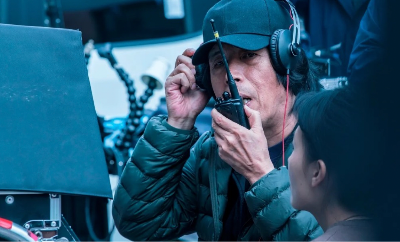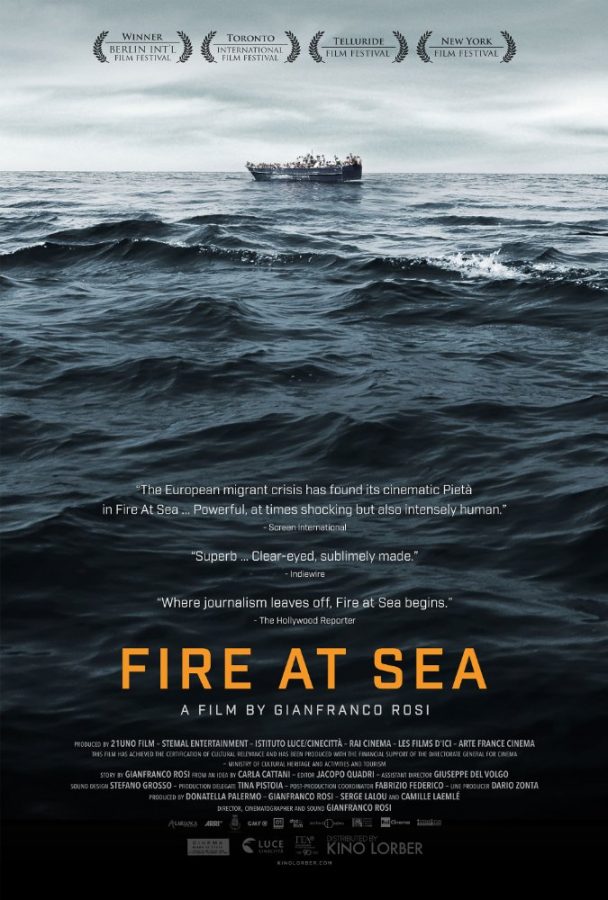‘Fire at Sea’ Explores Refugee Crisis
Directed by NYU alumni Gianfranco Rosi, “Fire at Sea” won the Golden Bear at the 66th Berlin International Film Festival.
October 20, 2016
“Fire at Sea,” the new documentary from director Gianfranco Rosi, is a stunning visual and aural immersion in the world of the European refugee crisis. Set on the southern Italian island of Lampedusa, a place that has seen hundreds of thousands of refugees over the past decade, the film alternates between multiple perspectives. It primarily focuses on that of a young boy, Samuele, other inhabitants of the island and the aid workers who deal with the refugees coming onto the island every day.
These contrasting perspectives between the islanders, whose home has been swept into a situation it never anticipated, and the workers, who are the most direct hands on the scene, offer possibilities for endless symbolism and metaphors. Rosi takes advantage of as many opportunities as he can. In one particular moment, Samuele and his friend are standing on a cliff, shooting finger guns at the boats that pass them by. Unbeknownst to the boys, these are the same boats that are on a mission to rescue refugees. This scene highlights a particularly common theme from the film: that many of the inhabitants of Lampedusa carry on with their day-to-day lives, completely unaffected by the pain and suffering that surrounds them.
Another aspect that sets the film apart is Rosi’s method of storytelling; over the entire film, there is not a single bit of voiceover or narration, a step away from the usual documentary style. While there are a few interviews, for the most part, the camera is not directly addressed, and the only words we hear are the dialogue between characters. In this way, Rosi removes himself from the film and allows the images and characters to iterate their own version of the story. The audience becomes a bystander, and is quietly let into the awful world of the refugee crisis.
When watching this film, one must suspend many of the expectations that the prevalence of blockbuster action movies has created. This is not a film full of excitement and drama, though there are such moments. Instead, it finds beauty and a strong message in the everyday lives both of the citizens of Lampedusa and of the rescuers working tirelessly to respond to its refugee crisis. To enjoy this film requires a surrender, a willingness to allow oneself to be swept up in the somewhat unconventional way that Rosi tells this poignant story. At times, the filmmaking seems a bit indulgent, and the shots are a bit long. But when the viewer accepts that this is the style that Rosi has chosen, the experience is improved by leaps and bounds.
Ultimately, “Fire at Sea” is a film about ordinary people being thrust into one of the greatest crises in recent history. The focus is highlighted particularly in a scene where Rosi interviews the only doctor on Lampedusa, a man who has been present at every refugee landing on the island for the past 30 years. It is scenes such as these that highlight how pervasive this issue is in the lives of some people on the island, contrasted against the almost blissful ignorance of many of the island’s other inhabitants. All told, this is an incredibly powerful film, with the ability to make you laugh and cry, and at times, simply sit in shock. It is a film that anyone who gives a damn about what’s going on outside our borders should go and see.
Email Thomas Lange at [email protected].












































































































































